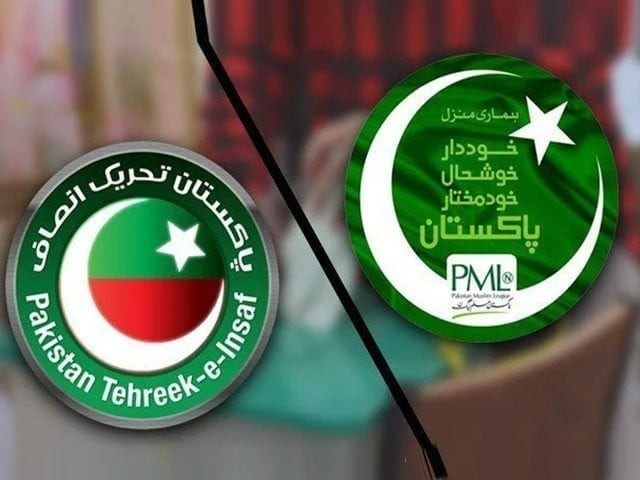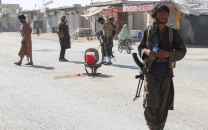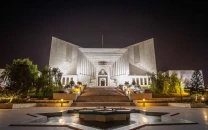Why govt-PTI talks failed?
Political mistrust, rigid stances and lack of experience blamed for breakdown

The much-anticipated negotiations between the ruling Pakistan Muslim League-Nawaz (PML-N)-led coalition and the opposition Pakistan Tehreek-e-Insaf (PTI) abruptly collapsed, leaving many questioning why a rare moment of engagement ended before yielding any tangible results.
Ironically, the failure of these talks has once again underscored the deep political mistrust among key players and powerful stakeholders, which continues to define the country's volatile political landscape further coupled with economic and judicial woes.
The negotiations between the government and the opposition began on December 23, 2024, in an effort to find amicable solutions to the country's political and economic challenges, and resolve long-standing disputes between the two sides. However, the process hit a snag after just three sittings.
The PTI had presented its charter of demands to the government in the third round, which demanded, among other things, the formation of separate judicial commissions on the May 9, 2023, and November 26, 2024, incidents.
Additionally, PTI charter also sought the "support" of the federal and provincial governments in bail, sentence suspensions and acquittals of "political prisoners" identified by the PTI. It said that these demands were presented as a "prerequisite to wider negotiations" on other issues.
PTI's abrupt exit
Now that the five-week-long talks are over, political analysts believe PTI's decision to abruptly walk away from the negotiation table was premature and detrimental to its own interests.
Ahmed Bilal Mehboob, president of the Pakistan Institute of Legislative Development and Transparency (PILDAT), argued that PTI should have exercised more patience.
"The abrupt dissociation of PTI from the talks was not a very wise move. They should have remained engaged to give a little more time to the government to respond or at least should have attended the fourth round," Mehboob said. "They should have negotiated with the government and asked them to explain why PTI's demands could not be met."
Mehboob pointed out that PTI's lack of experience in political negotiations may have played a role in its hasty withdrawal. Unlike traditional parties accustomed to the ups and downs of negotiations, PTI has struggled to reconcile democratic norms of compromise with its own rigid political culture.
"Negotiations are never a mechanical or linear process; they go back and forth before striking a deal. PTI has not been a party of negotiations and probably lacks the experience and patience needed for political negotiations," Mehboob added. "Although give and take or compromise is an integral part of democracy," he maintained, "PTI has branded these as negative traits."
Govt insecurity & PTI's distrust
While PTI's decision to suddenly call off talks has been criticized, the government's approach to the talks also left much to be desired. According to Mehboob, the ruling alliance may have been wary of PTI's potential rehabilitation into mainstream politics.
"I also feel that the government felt insecure about PTI striking a deal and again becoming acceptable to the establishment, and it also lacked the eagerness to reach a deal," he noted.
This scepticism was mirrored by PTI, which viewed the government's reluctance to meet its demands as proof of insincerity. Professor Tahir Naeem Malik of NUML University believes PTI felt that the government was deliberately stalling the process.
"PTI felt that the government was not serious as its demands were not hard to meet," Professor Malik explained. However, the government, he added, was equally frustrated with PTI's urgency. "Conversely, the government felt that PTI showed unusual urgency in talks for no reason."
Lack of negotiation culture
The failure of the talks highlights a broader problem: Pakistan's political culture remains largely devoid of sustained negotiation mechanisms. While democratic systems thrive on dialogue and compromise, Malik said, political and powerful players continue to view negotiations as a sign of weakness rather than a necessary tool of governance.
PTI's withdrawal and the government's hesitation also reflect unwillingness on both sides to engage in the prolonged, difficult and often frustrating process of meaningful negotiation. As Mehboob pointed out, genuine political dialogue requires patience, experience and the ability to make concessionsqualities that neither side seemed fully prepared to embrace.
What's next?
With the sudden collapse of talks, the political deadlock is likely to persist and increase economic and governance challenges. If meaningful engagement is to take place in the future, both PTI and the ruling coalition will need to shed their win-lose approach. Until then, the breakdown of negotiations will remain another chapter in Pakistan's long history of political impasse.



















COMMENTS
Comments are moderated and generally will be posted if they are on-topic and not abusive.
For more information, please see our Comments FAQ